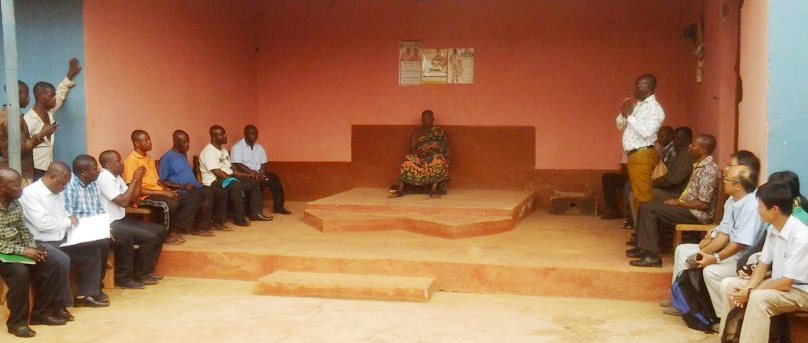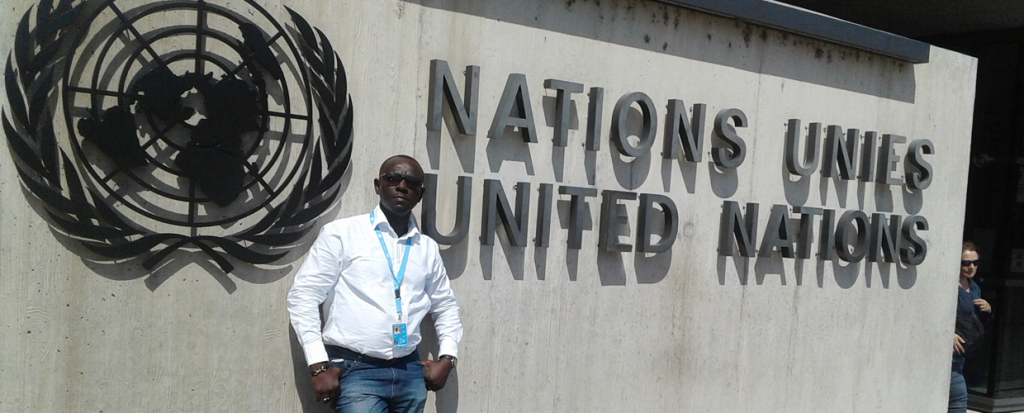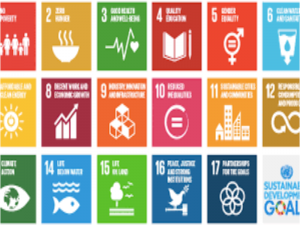
RURAL DEVELOPMENT
In Ghana, a rural area is an area with population of less than 5000 people. Most rural societies are relatively ‘integrated’, in the sense that the various components of life (eg. agricultural and non-agricultural, ‘economic’, ‘social’ end ‘political’, religious and secular) are closely interrelated. Rural people do not easily recognize the distinctions which planners, extension workers and other government officials make between, for example, the responsibilities of different agencies or ‘economic’ and ‘social’ planning, because in their own lives all these things affect each other. This is why an integrated approach to planning is essential at this level and why projects or programmes which are planned from only one point of view (eg. the ‘agricultural’ or the ‘economic’) frequently fail because they do not take account of other related aspects.
Also, most people in rural areas are dependent directly or indirectly on the natural resources of the area for their livelihood. Most rural planners, and especially agricultural planners, recognize this, and thus emphasize the importance of agricultural development activities production.
The International Fund for Agriculture Development estimates that about 51 per cent of the poor people in Ghana live in rural areas and that poor rural people have limited access to basic social services, safe water, all-year roads, electricity and telephone services. It is against this backdrop that development interventions in the rural areas are very urgent and crucial.
It goes without saying that the country would make no headway if the rural setting is neglected. Development in the rural areas means that the standard of living of the populace will increase. Also, there is the likelihood that activities in the area will divert from Primary to Secondary and tertiary. The country’s rural areas have a great deal to offer. It gives us essential raw materials alright but as side that, its value as a place of beauty, rest and recreation – when we look after it – is self-evident. That is rural areas when taken care of can continuously serve as the country’s lungs, and for that matter a battleground for the fight against climate change. Since agriculture is the major activity of the rural area, development at the rural areas mean there would be the presence of development of plans, veterinary infrastructure and skilled staff to build capacity for early detection and control of and response to livestock and crop diseases. Of particular concern are those livestock diseases that can be transmitted from animals to humans. And aside from that there would be food security in the country.
The organization is therefore vigorously promoting rural development as part of its contribution in helping to achieve the SDGs by advocating for the development of socio-economic infrastructures at the rural areas.
Develop Eco-Village
In view of this, the organization has secured a 20 acre land of which it intends to use it for the development of an eco-village. It is therefore seeking partners to collaborate in developing this model project of which it intends to power it with renewable energy.
Develop Water and Sanitation Facilities
Furthermore, it intends to promote and assist the development of bore-holes and toilet facilities for rural communities currently being deprived of these facilities in Ghana.
Building Advocacy and Community Engagement
The Community advocacy and engagement are proposed to be organized in rural and deprived communities to mobilize stakeholders and community leaders in meeting with development practitioners to share ideas. These fora can help raise the standards of living in these communities by helping development practitioners gain insight and understanding of the problems and opportunities in the communities, develop suitable products and solutions and help the community to redirect and release resources for sustainable development.




